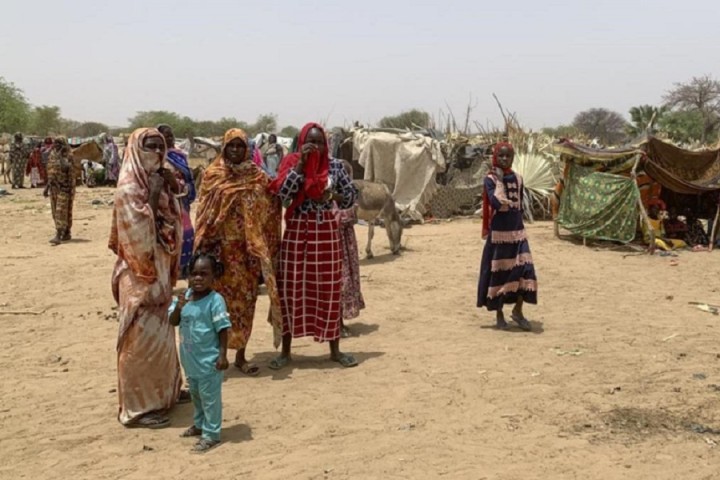How the war in Sudan could exacerbate impacts of the climate crisis in the Horn of Africa

The tragic war underway in Sudan will soon start to impact neighboring countries, as refugees cross borders to flee the violence. Recurring civil conflicts have already displaced up to 3.2 million Sudanese internally. The latest violence—focused on Khartoum but flaring all around the country—is pushing more people to flee.
Already 20,000 Sudanese have crossed from Darfur into Chad, where some 400,000 refugees have been living in 13 camps for many years. Some 10,000 have headed north to Egypt in late April. Refugees are also ending up in South Sudan and Ethiopia, where recent heavy rainfall and resulting floods have affected hundreds of thousands of people. Floods have destroyed homes, livestock, and agricultural land, which could drive further rural-to-urban migration within the region.
In these receiving countries, the arrival of thousands of refugees may overwhelm already fragile infrastructure and public health services for some of the world's most vulnerable populations. What's more, Sudan itself hosts one of the largest refugee populations in Africa, many of whom are considering "going home". For example, some 70,000 refugees from Ethiopia fled to Sudan during the recent Tigrayan War. If they do, return movements will add to the influx of refugees moving into neighboring countries.
To support refugees and returnees, attention is needed in the urban areas where they almost always end up: informal settlements.
Take the city of Addis Ababa, capital of Ethiopia. It's estimated that more than 80% of the city's population live in informal settlements: areas that often lack clean water or waste management, where housing is made from found materials, roads are unpaved, and electricity is sporadic at best.
Informal settlements in Addis—like many cities around the world—are some of the most densely populated places on Earth, yet events like the Sudanese war and the displacement it's caused will contribute to their already rapid expansion.
Already one of the biggest cities in Africa (its population is over 5 million), Addis is growing quickly, especially its informal settlements. But urban management of informal settlements is extraordinarily challenging—even locating them is a major hurdle for local government planners, who brought this issue to our attention in our briefings with them.
Our research has attempted to map informal settlements in inland African cities, including Addis, using satellite data and Google Street View imagery. Our maps have tried to project climate impacts like flooding across cities.
Our climate modeling has found that informal settlements are at high risk for flooding today, and at an even greater risk in 25 and 50 years' time, given projected increases in future seasonal rainfall. With flooding comes great risk to human life and property, threatening to wash away precariously built homes and the lives within them. This past March, four family members were tragically killed as a flood washed away their home in Nifas-Silk Lafto, an area of Addis Ababa that our analysis identified as having a high flood risk.
Without better alternatives, Sudanese refugees arriving in informal settlements in neighboring countries put themselves in a different kind of danger: environmental risk. Their arrival will further tax the fragile infrastructure of informal settlements and exacerbate existing flooding hazards. Sudan's crisis can thus further inflame environmental risk in urban informal settlements across the region.
The UN Refugee Agency (UNHCR) provides temporary shelter to Sudanese refugees, but many will ultimately forgo formal humanitarian assistance and head for the informal settlements in neighboring cities, where many have families and ethnic networks. But without direct support, these cities face potentially calamitous outcomes.
The U.S. can lead by sending expert teams to these informal settlements in Addis, Cairo, and N'Djamena in Chad to support them in accommodating new arrivals. Additionally, local and international researchers can collaborate with these growing cities to support them through research and technical assistance.
Tailored, data-rich maps identifying the intersecting urban and climate risks are vital to understanding where the greatest threats to the cities' most vulnerable populations, and where to build infrastructure like sewers, clean water systems, and drainage to help manage and sustain the new influx of people fleeing conflict. It is a small but critical step to mitigating widespread suffering across the region in times of crisis.
War always causes irreparable losses

